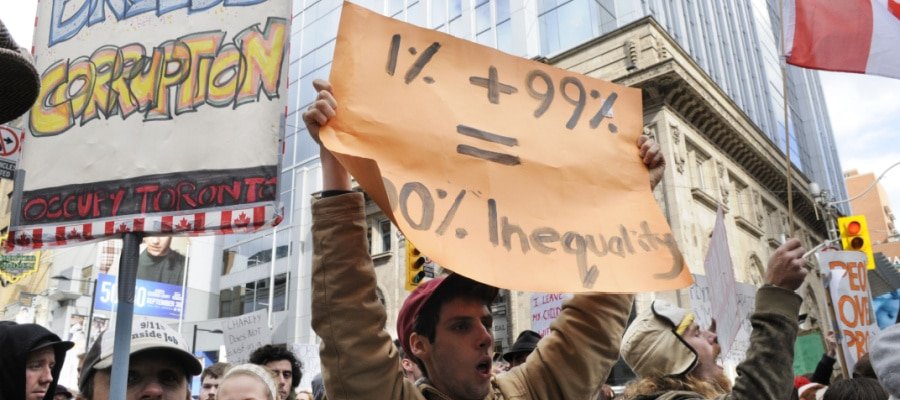By Harinder Mahil
According to a report by Statistics Canada released in October 2024, income inequality in Canada has hit the highest level ever recorded as wealth becomes increasingly concentrated in fewer hands.
The gap in the share of disposable income between the richest two-fifths of Canadians and the bottom two-fifths grew to forty-seven percentage points in the second quarter of 2024.That’s the widest gap recorded since 1999, when Statistics Canada first started collecting such data.
This is occurring at a time when the cost of living has risen sharply, and the lowest income Canadians find themselves without enough income to afford basic necessities such as food and shelter.

The gap was driven by the top 20 per cent of income earners, who saw the largest increase in their share of disposable income. That increase was driven largely by investment gains, which Statistics Canada attributed to high interest rates.
The Statistics Canada report said that in the second quarter, the top 20 per cent of Canadians held more than two-thirds of the country’s wealth, averaging $3.4 million per household. By comparison, the bottom 40 per cent of Canadians accounted for only 2.8 per cent of Canada’s wealth.
It is up to us to decide the type of society we want to live in. I much rather live in a society where income disparities are not that huge, where there are no systemic barriers that prevent people from achieving their full potential and where the benefits of increased prosperity are broadly shared.

To reduce such income disparities and alleviate pressure on the lowest-income households, government should target income supports to those who need them most and make the tax system more progressive.
A progressive income tax system could include higher top marginal rates, full taxation of capital gains, reductions in deductions and credits that disproportionately favour top earners and increasing basic exemptions in favour of low-income households.
Here are some other steps suggested by progressive economists to reduce income equality:
Increase the minimum wage: Research shows that higher wages for the lowest-paid workers have the potential to help hundreds of thousands out of poverty. Additionally, increasing the minimum wage does not hurt employment nor does it retard economic growth.

Provincial social assistance should be increased. Provinces and territorial governments should annually increase benefit rates in line with inflation. Social assistance benefits should be improved so that those with no other sources of income can lead a dignified life.
Differences in early education and school quality are the most important components contributing to persistent inequality across generations. Investments in education, beginning in early childhood can increase economic mobility, contribute to increased productivity and decrease inequality.
We must take steps to minimize social and economic disparities as they threaten democracy as those with the most wealth are able to influence political decision-making and do so to protect and strengthen their own interests.
Harinder Mahil is a human rights activist and is secretary of Dr. Hari Sharma Foundation.















